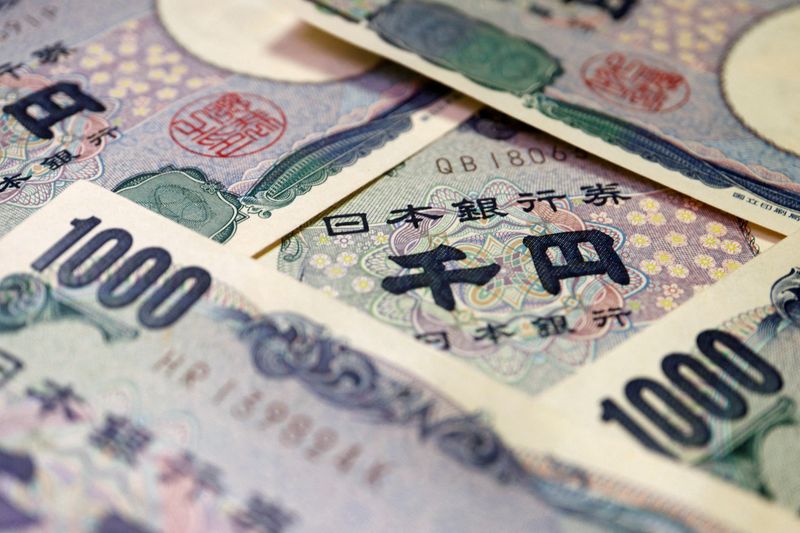Japan logs smallest current account surplus for August as imports weigh
2022.10.10 21:09
[ad_1]

© Reuters. FILE PHOTO: Banknotes of Japanese yen are seen in this illustration picture taken September 22, 2022. REUTERS/Florence Lo/Illustration
By Tetsushi Kajimoto
TOKYO (Reuters) – Japan’s current account surplus shrank to its smallest amount on record for the month of August, Ministry of Finance data showed, with surging prices of energy imports outstripping price rises in exports, draining national wealth.
The surplus stood at 58.9 billion yen ($404.45 million), smaller than economists’ median forecast of 121.8 billion yen in a Reuters poll. On a seasonally adjusted basis, the current account was in a deficit of 530.5 billion yen for a second consecutive month of shortfall.
Japan has not recorded a current account deficit on an annual basis due to years of trade surplus. However, the current account surplus has shrunk for four consecutive fiscal years through March as the country’s trade balance worsens.
Once seen as a sign of Japan’s export might and a source of confidence in its safe-harbour yen, the country’s current account surplus has occasionally swung to deficit on a single-month basis in recent years.
While yen weakness has inflated the cost of imports, its boost to the value of exports has not been as great due to an ongoing shift of production abroad.
While Japan continues to offset trade deficits with returns from overseas investment, its worsening balance of payments highlights structural changes in the economy, going against its image as a trade powerhouse.
Japan’s primary income balance clocked a record amount of 3.327 trillion yen as returns from overseas investment have grown steadily in recent years.
That reflects firms shifting production overseas for years as a strong yen made their exports less competitive.
Policymakers are more concerned the weak yen will drive up import bills and the cost of living.
Surging import bills, driven in part by the weak yen, would hurt households and companies by draining domestic wealth due to a heavy reliance on fuel and food imports.
($1 = 145.6300 yen)
[ad_2]
Source link








